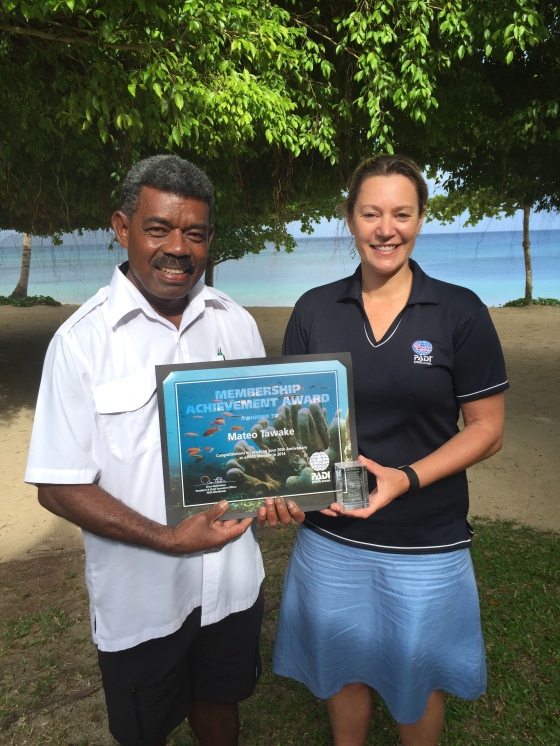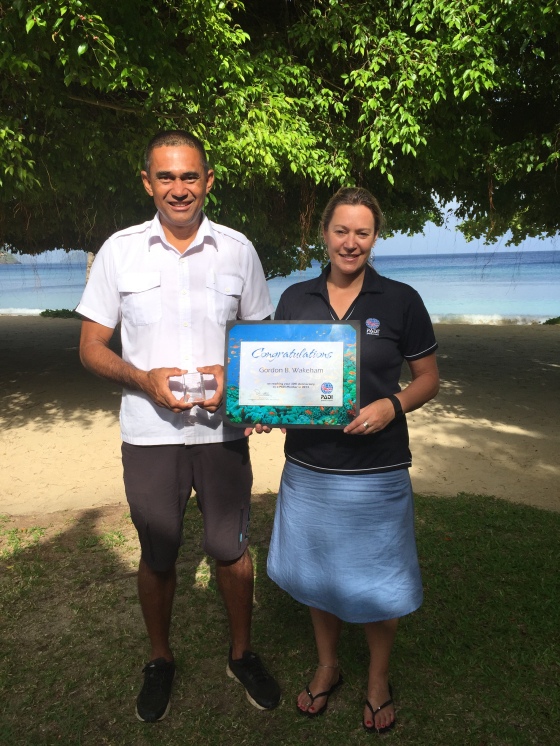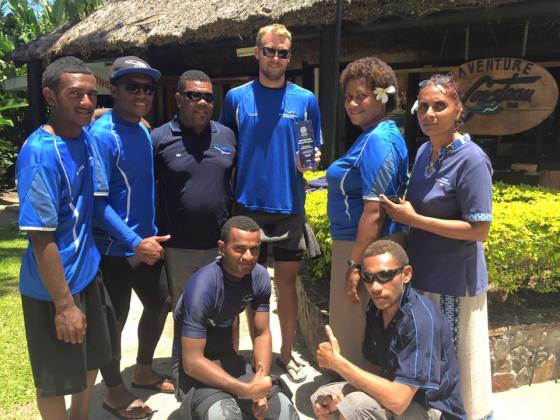Full story on Mike's blog:
A blog about the great scuba diving around Fiji. Some of the highlights of living and working in Fiji is the diving on the soft coral reefs with sharks, mantas and teeming life on the reefs.
Tuesday, 29 December 2015
Celebration - The BAD Cut
Full story on Mike's blog:
Thursday, 17 December 2015
Characteristics of the shark fisheries of Fiji
Limited information is available on artisanal and subsistence shark fisheries across the Pacific. The aim of this study was to investigate Fiji’s inshore fisheries which catch sharks.
In January and February 2013, 253 semi-directive interviews were conducted in 117 villages and at local harbours on Viti Levu, Vanua Levu, Taveuni, Ovalau and a number of islands of the Mamanuca and Yasawa archipelagos.
Of the 253 interviewees, 81.4% reported to presently catch sharks, and 17.4% declared that they did not presently catch any sharks.
Of the 206 fishers that reported to catch sharks, 18.4% targeted sharks and 81.6% caught sharks as bycatch.
When targeted, primary use of sharks was for consumption or for sale. Sharks caught as bycatch were frequently released (69.6%), consumed (64.9%) or shared amongst the community (26.8%).
Fishers’ identification based on an identification poster and DNA barcoding revealed that at least 12 species of elasmobranchs, 11 shark and one ray species (Rhynchobatus australiae) were caught.
This study, which is the first focused exploration of the shark catch in Fiji’s inshore fisheries, suggests that the country’s artisanal shark fisheries are small but have the potential to develop into larger and possibly more targeted fisheries.
 Published on 02. December 2015
Published on 02. December 2015
Characteristics of the shark fisheries of Fiji | Shark Year Magazine:
'via Blog this'
In January and February 2013, 253 semi-directive interviews were conducted in 117 villages and at local harbours on Viti Levu, Vanua Levu, Taveuni, Ovalau and a number of islands of the Mamanuca and Yasawa archipelagos.
Of the 253 interviewees, 81.4% reported to presently catch sharks, and 17.4% declared that they did not presently catch any sharks.
Of the 206 fishers that reported to catch sharks, 18.4% targeted sharks and 81.6% caught sharks as bycatch.
When targeted, primary use of sharks was for consumption or for sale. Sharks caught as bycatch were frequently released (69.6%), consumed (64.9%) or shared amongst the community (26.8%).
Fishers’ identification based on an identification poster and DNA barcoding revealed that at least 12 species of elasmobranchs, 11 shark and one ray species (Rhynchobatus australiae) were caught.
This study, which is the first focused exploration of the shark catch in Fiji’s inshore fisheries, suggests that the country’s artisanal shark fisheries are small but have the potential to develop into larger and possibly more targeted fisheries.
Characteristics of the shark fisheries of Fiji
Characteristics of the shark fisheries of Fiji
Kerstin B. J. Glaus, Irene Adrian-Kalchhauser, Patricia Burkhardt-Holm, William T. White, Juerg M. Brunnschweiler
Characteristics of the shark fisheries of Fiji | Shark Year Magazine:
'via Blog this'
Monday, 14 December 2015
Valued PADI Members in FIji get Recognition Awards from PADI Oceania
As PADI Regional Manager it's always great to meet members all over my region. So many have been in this industry for a long time and their experience and knowledge is invaluable. The stories they have to tell about their life as PADI Pro's could entertain divers for hours!
It was an absolute pleasure to recently present awards and certificates to the PADI Members below in Fiji. These PADI Professionals have invested at least 20 years into the dive industry.
It is a great part of the job where as Regional Manager I get to say thanks on behalf of PADI.
Recognition Awards for Valued PADI Members | PADI Pros Oceania:
Jen Clent - Regional Manager | December 8, 2015
Subscribe to:
Comments (Atom)




